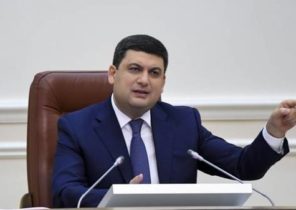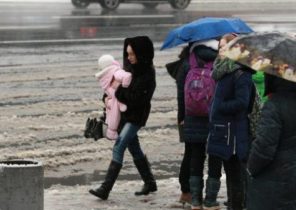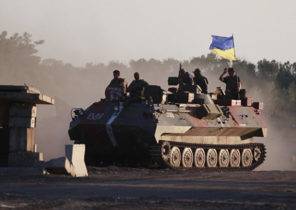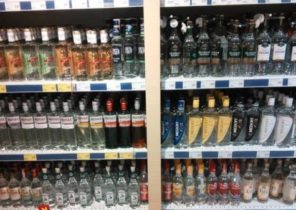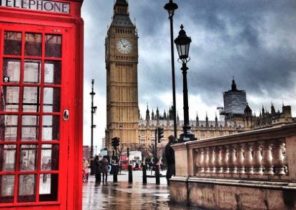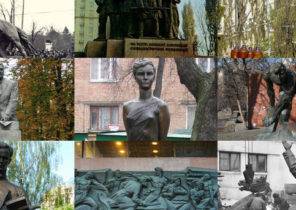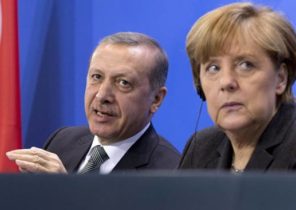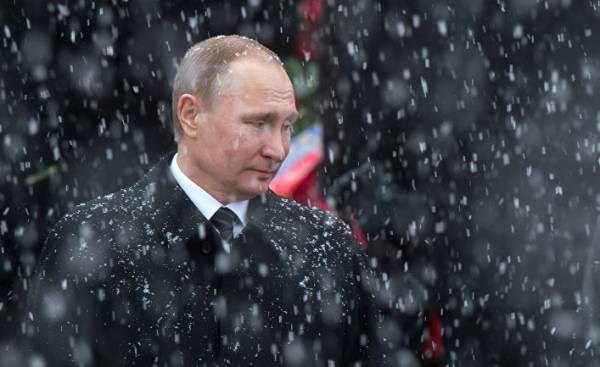
The main objectives of the study
•To qualify the nature of the political regime established by 2017.
•Assess underlying risks of the regime after 2018.
Key findings
•The lack of dynamism in the political system, the establishment considers it a virtue, not a risk.
•The nature of the regime is logical to describe not in terms of political science, but in terms of political theology: the citizens of Russia do not support “the first body of the king” — a living person, and “second, the political body of the king” — a symbol of Russia, embodied in the brand “Putin”. 80 percent rating of Vladimir Putin is, in essence, approval sakralizirovannaya image of Russia.
•In the mass consciousness Putin is the Tsar or the General Secretary. How much would be items or a reduced GDP and no matter how fell, real income, it will not be able to shake the power of the first person as long as the majority decides that “the king is not real”. So far, the President of the social contract “You are loyal to us and associated with politics, and we give you the Crimea, the greatness of power and “millennial history”” proves that he is “real”.
•Mode evolved from the attempts of authoritarian modernization to the model of the Russian neo-imperialism and state capitalism (70% of the contribution of the state and state-owned companies in GDP).
•Russia is a kind of “fictitious state”: it cannot provide citizens with quality services, its strong rituals, “defensive” wars and symbolic victories.
•The control system is reduced to inertial “development”, without expanding the area of violence with the use of targeted repression, combined with the propaganda/censorship/self-censorship.
•The regime is not ready to change: fear of the consequences of possible reforms is stronger than the fear of the consequences of continued stagnation.
•We have a model of “bad equilibrium” of game theory — none of the social and political groups are not willing to do anything for fear of worsening their situation.
•By 2017, the regime evolved from a “capitalism of friends” (cronies) to the “capitalism of the guards” — the most effective officials are the people from law enforcement agencies and departments of the technocratic bureaucracy, relatively young people are about 50 years old who can’t say to Putin “you”. They will participate in the race for key posts in 2018-2024.
•Sami 2018 elections become a kind of referendum on confidence in Putin, who needs no intrigue and no real competition; the problem of appearance will be decided in the same way as in the parliamentary elections of 2016, for the expense of pumping results in the remote of Moscow, the territories and the Northern Caucasus and the propaganda use of references to “experience” the low turnout in the Western countries.
•Waits for “trap-2021” — is not only the year of the end of the next tenure of the Parliament, which means the need of “reconstruction” of the party system at erosion of all parties mimic the opposition, and the existing model of the “party of power”, but the time when the President will have to send the elites a signal that, as will the mechanism of succession. In addition, at this point, if you do not start the reforms will be felt “institutional curse” — the country will face a minimum of degradation of social systems and sectors of human capital, public administration, and also show itself negative demographic trends. The inertial model of “development” to survive the crisis.
Introduction
The leitmotif of the political year — the expectation of a presidential election that will be held in March 2018. And in fact — technically the fourth term of Vladimir Putin (informal fifth as pause 2008-2012 were technologically advanced way to extend the reign of the second President of Russia). In this expectation are read simultaneously and indifferent inertia, and a desire for change. On the one hand, the political structure, whether we call it authoritarian, personalistic, or what else, remains small and even major personnel changes, the contradictory hints and signals coming from the Kremlin from the Old square, Krasnopresnenskaya embankment, Okhotny Ryad, by and large do not change anything. On the other hand, just by itself, the change of political cycle in Russia is clearly marked to the presidential and parliamentary elections are not unimportant, provokes the question: will there be changes and if so, what?
The lack of dynamism is not a risk, and dignity
Definitely will not be changing the names of the President. Authoritarian one vector to rotate in the direction of expanding the space of freedom is not going: it is impossible neither technically nor politically (including due to the popularity of authoritarian and isolationist discourse), or ideologically (imperialism, nationalism, militarism, isolationism, political православие1 underlie today’s social contract between government and society). But then begin the details. And their specific content depends on, risks for the government and if she saw them at all.
If the government (and under it we mean here the very first face and a few “near” circles, at least to some extent, influencing in this verticalizing system on decision-making) feels like standing on top of a mountain and assess themselves as being almost perfect, she doesn’t have to be afraid of anything and even nothing to plan in a strategic sense. As noted in a private conversation one analyst, “perfection has no future.” And so he doesn’t need strategy. If the government is worried how she will continue in the coming years, suddenly decide that at least for the sake of survival we need to change something in the system — then she can begin to plan reforms of greater or lesser magnitude.
While we can say the situation of uncertainty: the authorities are so frightened by the economic crisis and the deterioration of social well-being of the Russians, to begin the reform (which, in General opinion, should somehow be necessarily “painful” and “unpopular”). Enough point of permanent repression and propaganda tsunami to keep society in a state of apathetic support everything that makes the country’s political leadership.
However, if the alarmist-minded experts will offer something hyperrational, but it does not affect the very foundations of the system and correct some shortcomings — not only in Economics but also, for example, in the system of public administration. Some power will be opposed to her commands were fulfilled to the letter? So, it may be even easier to control the society. What power against technological development? In the end, technological progress allows you to more effectively monitor citizens and their private life.
But the present demand for reforms for the sake of no development. Because in this case we will have to agree to the extension of the freedom of society. And this is our hybrid autocracy can not go. Because of the threat it sees in the stagnation and slow development, and in any transformation and the corrections system. If the model of populist authoritarianism was justified — why change it? In this situation the principle is not working Tancredi Falconeri, the hero of Alain Delon in “the Leopard” by Luchino Visconti: “To everything remains as it is, you need to change”.
No change or just the dynamism in the system is perceived as a plus and not as a risk.
The king’s two bodies, or Why is Putin popular?
“Putin” is a brand, the brand, and not man. As Armani or Gucci. The brand is synonymous with “Russia” and “Crimea”. The question of sociologists “do you Approve of Putin?” is semantically possible to decrypt so: “do you Approve of our mother Russia, the best country in the world, the moral and votserkovleniya, all the while forced to defend themselves against the apostates, infidels, strangers?” Why in this situation, an 80% “Yes” response must seem surprising?
To assess the Putin regime in terms of classical political science, can definitely like to talk about the hybrid is authoritarian or distilled and as all this system of government called. But it cannot be called modern: it evolved from state socialism to state capitalism, without losing the emphasis on the word “state” (in fact, we are talking about commercialized the Soviet regime put in place of Marxism-Leninism eclectic ideology recovering the great powers). Outdated and the perception of the first person — a characteristic attempt in 2007 to grant him extra-constitutional title of “national leader”. Establishment and a substantial part of the population see in Putin’s Tsar — or, more precisely, the Secretary-General (these models in the mass perception is similar).
Power in Russia is highly sacrality her for not waiting (or not waiting) fix leaking roofs, she is the source of gestures, like the annexation of Crimea. And in fact, the popularity of the Russian President, who has almost 18 years in power (counting from the date of his appointment as Prime Minister in 1999), should be described in terms of a political theology.
The medieval doctrine of the “two bodies of the king” best explains the phenomenon of perception of the first persons of the Russian state hierarchy. According to this concept, the king has two bodies — physical and political. That is the second person embodies the power of the state. When the characters are close to the Kremlin said: “Putin is married to Russia,” they had no idea that I often think of medieval political theology: “Sovereign is connected with the state as with his wife”.
This is the type of government in which the normal and legally justified are, for example, actions that many centuries ago were made in the framework of the bellum iustum — “just war”: “…in case of danger, the Emperor has the right to introduce new taxes to protect the patria”.
Installation of modern Russian ideologists — “Putin is Russia, Russia is Putin, respectively, those who oppose Putin is against Russia”8 — is absolutely medieval in form and content: “the king’s Peace is your peace, prosperity king is your well-being… One who is waging war against the king [of France], fighting against the Church, against the Catholic doctrine, against Holiness and justice, and against the Holy land”.
Another principle, — Rex est populus, “the King is the people”. The will of the people symbolically represents the king. And even if the king is executed — that is, destroy his physical body replaced by a new monarch and the body politic of the king is saved, it cannot be destroyed. However, the time comes a different type of government, the slogan “the King is dead, long live the king!” replaced the slogan “the King is dead, long live the Republic!”. And then the role of the political body begins to play by the Parliament. After the French revolution there is “a new dual body (i.e. the people and its parliamentary way)”10. The people should be represented in Parliament. And if he was not at the table, he sees the embodiment of political power in the king. In the Russian case, the President.
More than 80 percent of the population approving of the President, just admit that Russia is identical to the second, the political body of the king.
Despite the fact that we used to evaluate the power of the Russian President as an authoritarian and personalist, it has above all symbolic value. But as the government in General, the relationship is more complex. On the one hand, respondents “Levada-the centre” to evaluate the government as “strong and durable”, indicators of perceptions of it as corrupt and criminal in recent years has decreased, on the other hand, citizens believe that “leadership” does not take into account the interests of the people and cares only about himself.
We are dealing with a kind of “fictitious state.” This state looks very strong: it bombed Syria, takes Palmyra and Aleppo; here rumble defense, war, and hate; coming to the forefront of the Church, the Army and the FSB; through the news shines a great history of kings and General secretaries, violence and victories. All this external paraphernalia is secured unifying rituals, concerts, parades.
But this powerful state, this echo, rushing between the mausoleum, the Gum and the Kremlin wall, this intense trembling of the air before the start of the parade in honor of the anniversary of the victory in the great Patriotic there is another side. This state can not provide normal working of the elementary services. It copes with the function of violence for self-protection against its own citizens, but can not provide the resources industry, human capital, health and education. Its institutions — from parliaments to NCO — simulation. Man that state to help maybe not always, but is able to resist him politically, even in everyday situations when the ordinary citizen comes into contact with public authorities and services. And the average Russian is proud of “Criminalism”, and the second body of the king, both in his everyday life do not want to deal with the state, tries to minimize contact with him and cheating on him as well as it.
Surprisingly, symbolic, shrouded in rituals Kremlin political greatness of the body work and natural body President. It is, as it seems at first glance, not sacrality — not least because the President was not without pleasure and hours communicating with different audiences. Not to say that it is, is between him and the citizens is stripped by employees FSO empty space. But his very manner of speaking is quite folksy. Language — from the very beginning of the reign, after the famous phrase “Soak in the toilet” that broke all the stereotypes of political discourse — tough, ironic, almost obscene.
Power speaks the language of the street, identifying himself with the “common people”. And it would seem, thus it should designalicious to stop being magical, raskoldovat. But this sort of “street” populism is not desacralized second, the political body of the President. Its symbolic value is the Keeper of all sacred, all “spiritual braces” does not disappear. This is not a purely Russian phenomenon, it is in principle characteristic of a modern policy — previously, harsh language would have caused the voters at best puzzling, now it’s more of a competitive advantage, which is clearly seen on the example of Donald trump. The leader of which looks the same as all the average Russian or the average American — does not lose its sacred political body. First, an idol is an idol, he is a politician or a pop singer, secondly, a pedestal is erected and sacralizes this very rude — she is not just a political tool, but also dignity policy in the eyes of the people.
This, of course, the destruction of language policy. But the language of the old politics. A new political culture (or incivility) suggests a new type of discourse. Yes, the demand for rude conversation, decent Smoking room of the district office of the FSB, existed, but it had to Wake up at the top. And thereby to permit wide usage. According to Pavlovsky, “the Russian propaganda, about which so much is said, is the satisfaction of mass demand for hate vision”.
We note in passing that, as a symbol of power, a symbol of Russia, in the body politic, Putin may have laid the foundations for long-term immutability of the regime — and even, perhaps, without it. About this says next, Gleb Pavlovsky: “Putin will leave a deep trace in the multilateral system of the Russian Federation, and, therefore, in inheriting her state of Russia. He became for many people the standard of abstract higher power. Exclusively representing the state… Putin speaks to the people only those problems, which is ready to offer a solution — or rather, themselves as protection from their insolubility… Stop as “Putin’s regime”, the system of the Russian Federation will remain as the preferred behavior and as a way to formulate and solve problems”
Left on base. Social
Base of support for Putin, including electoral, over the years of his reign naturally evolved. When a new leader appeared on the political scene in 1999, he was not known to the General public, so expectations that he was contacted, formulated “on the contrary”. Most expect that he will not like Boris Yeltsin, including psychologically and physically. A few months Putin passed the probationary period the elites, who were delighted with him, and at the end of 1999 it was a chance to “move” in the President. It was quite obvious that in contrast with aging and is losing popularity Yeltsin crisp, clear staccato speech, a young, tough leader passed the probationary period and electors. Political machine has shown that it can cope with any challenge, dull bureaucrat whose appearance turned into the finished form of the future political idol.
The majority, which is then called “Putin”, and then “postkrymsky” was not homogeneous, none of criteria — political, social, psychological. Putin liked the contrast with the previous leader, and with him their hopes for an exit from a condition of protracted transit from socialism to capitalism. Each of the social and political groups were and own certain expectations. The liberals believed that they were “privatized” to Putin, and because he hoped that it would hold authoritarian modernization, a plan which they have prepared for the year 2000. Nothing like that happened. It’s been 17 years, and all of those same liberals are prepared to Putin the same plan, linking with the next period of hope all the same authoritarian modernization.
But Putin himself and his position evolved from the idea of authoritarian modernization to the eclectic ideology of Russian neo-imperialism and state capitalism, became the symbol of social consensus. Whose source is not the passionate support of the ideas and actions of the head of the state and its elites, but rather indifference.
This is a very serious point about it is to talk details.
The nature of this neutral support of a social order which seems stable and immutable, explained Ernest Gellner in “conditions of liberty”, published in 1994: “People are more likely to consider themselves sinners, than to blame the social system in which we live… We like to accept and approve our Universe”16. And further: “an Ordinary person… willing to accept on faith the beliefs that are shared by other members of the community… he is not a cynic and does not hold a Fig in the pocket — just had enough other worries. This is a comfortable position, and it suits most people. The striking ease with which the change in the balance of power whole Nations change their beliefs… suggests that these beliefs are not so deep. And the ease with which even the most absurd regimes and ideologies retain their power, testifies to the gullibility of people, at least — about their lack of criticality”.
In short, according to the classical analysis of Erich Fromm, which was made almost 80 years ago, it is easier to escape from freedom rather than trying to cope with the difficulties that it engenders, “as part of the force which the person believes unshakable, eternal and beautiful, he becomes involved in its power and glory. The individual is wholly renounces himself, refuses from the strength and pride of the “I”, from their own freedom, but finds new confidence and new pride in its involvement in the power, which can now be included”.
This is absolutely normal, if not rational, behavior. At it absolutely should not be influenced by the percent fall in GDP or real disposable income, especially in Russia, there is, in spite of the powerful intervention of the state, the market economy that supplies any product and allows people to survive, including at the expense of the informal sector. If anything, Putin is a picture of the world. And collapse, it can only be when, as says the Professor at the European University in St. Petersburg Dmitry Travin, “a people’s soul creeps in the notion that “the king is not real”.
And Putin still has on hand all the evidence that he was the “real king”: Russia dictates the rules the rest of the world, and soon much of this world will borrow its style of governance — from the USA to France. And this is for the “king” win-win-situation: will US friend is a victory, would not the concept of a besieged fortress let, as before, to consolidate citizens around the President.
And at the same time, Putin — the symbol of the “bad equilibrium”. The political version of the “Nash equilibrium” in game theory defined as “a set of strategies in the game for two or more players, in which neither party can increase the gain by changing his strategy if the other members of their strategies do not change”. For the political system, it means this: if “players” is ordinary citizens, government establishment, business and political leadership of the country, it turns out that all of them to make sudden movements separately (when the other “players” are not going to move) is dangerous. For example, such a familiar situation: the political leadership is not going to do anything radical, and in the meantime the part of the citizens is a demand for change — that is, trying to disrupt the balance.
Then the political leadership is interested in balance, will suppress the protest, to falsify the elections, cut off from participation in any process unwanted powers — only to maintain the status quo. The majority of the citizens, for fear of worsening their situation, prefers to be in this equilibrium, and let the “bad” state. So do business and political establishment — no one wants to lose their positions, showing excessive initiative. That’s all, and remain without motion, keeping the “bad equilibrium” and thereby remaining the social base of the regime. Although in this case, the base is very weak and changing political winds can instantly disappear.
Comparing the current political situation of the last two decades of Soviet rule is not always correct, but what unites these historical periods, the situation is “bad equilibrium”. And the key engine that supports it, is apathy, immersed in his own problems, distrust of citizens to the state, and the state’s citizens. This does not contradict the presence of “social glue” — returned the feelings almost of Imperial, militaristic, historically triumphal grandeur and logic of the social contract, which can be formulated as follows: you give us loyalty, we will give you a sense of the great powers and “millennial history” (the expression of Vladimir Putin).
One of the important elements that support a system of indifference — the attitude to Vladimir Putin has not as a character (support character is a approval rating), but as a person and Manager. The most frequent rating is “I can’t say anything bad about him” (31% in July 2016)22. That’s the whole secret…
Social support base of the regime and its leader — a vague, uncertain, unstable, unsteady. We can assume that among those who “can’t say anything bad” — depending on the state people, the degree of activity and autonomy which are small. The contribution of the state and state companies in Russia’s GDP, according to the Federal Antimonopoly service (FAS), was 70 %. And the state, if not the main, the most coveted employer — especially in a situation when the space for private initiative or not, or all areas regulated so that the costs of initiating their own business exceed the possible benefits.
You can state a hypothesis: the current Russian political regime do not support the owners and (or) self-employed people, salaried workers, government employees — those whose well-being depends on state or parastatal agencies. Then we have 70-percent presence of the state’s 80 percent approval of the symbol of Russia — the brand “Putin”.
To change or not to change
Understand why the authorities without end, repeat the mantra about unity of the people and its consolidation around the uncertain set of Patriotic values. If people believe that they are United and consolidated, even in a situation where they are dissatisfied with the quality of governance in the country, remains inertial stability and is the basis for the authorities not to use mass repressions against the discontented, and to limit point the repression and the massive propaganda with the occasional imitation of “liberalization” (the most striking example is the appointment to the post of curator of internal policy of presidential administration and former Prime Minister Sergei Kirienko has a reputation as a liberal). “If the repression is too costly, the elite would prefer to buy citizens promises in the field of public policies, for example in the redistribution of income”, write Daron Acemoglu and James Робинсон24. And at the same time the government is making enormous efforts in the field of propaganda and censorship.
And if you have nothing to reallocate? Acemoglu and Robinson draw this conclusion: “Greater inequality makes redistribution more costly for the elites, and repression is more attractive than both the democratization and the promise of redistribution, ceteris paribus. This increases the willingness of elites to use repression, even if they entail large costs.”
The government does not really wish to expand the area of violence and are willing to restrict the model in which a combination of targeted repression and propaganda/censorship/self-censorship. Which corresponds to the General mood of the country’s leadership — to change nothing, to continue more or less inertial development.
Fear of change is stronger than the fear of possible consequences of stagnation. In this situation, systemic reform, especially the transformation or reconstruction of the institutions, impossible — except that the autocratic elite would agree to a small technocratic improvement, for example in the promotion of technologies and new management practices. Besides, if you are not changing the whole regulatory environment, not updated approaches and values are institutions and rules that should facilitate the lives of ordinary citizens, not officials or representatives of the establishment, the new institutions “will almost certainly work much worse than those of the institutions they stand for”. And it is also not conducive to the emergence in power desire to change something.
She does not believe in the success of the change.
Capitalism guards
All this “frame” for the presidential election in 2018. Vladimir Putin goes to the elections, holding them in constitutional terms, wins. Question: what is it going to the polls? With whom? How will he respond to uncertain and vague expectations of voters? Or he generates them himself? What will these elections: with at least a competition of ideas and of people — or they will be like a referendum on confidence in the leader or on the poll on the approval of activities in the first person?
2016 was marked by several significant appointments: the governors of Tula, Yaroslavl, Kaliningrad regions become, respectively, Alexei Dyumin, Dmitry Mironov, Evgeny Senichev (which, however, he soon resigned), all natives of the presidential security Service. The head of the presidential administration, was appointed chief of Protocol of the head of state Anton Vaino, and the Deputy head of the administration responsible for the political sphere, a former Prime Minister and then the head of “Rosatom” Sergey Kiriyenko. Vyacheslav Volodin has moved to the seat of the speaker of the state Duma.
This personnel change is not over. Former Finance Minister Alexei Kudrin was given carte Blanche to develop if you don’t reform program, the “road map” of some of the changes in the economic, social and managerial systems after 2018.
Great political importance was the arrest of several governors, including the liberal Nikita Belykh, several top managers of large companies, the dismissal of the head of customs Andrei Belyaninov and the head of the presidential administration Sergei Ivanov. The most significant of all significant personnel moves was the resignation, along with the arrest and the corruption charges of the Minister of economic development Alexei Ulyukayev. It was impossible not to notice the deliberately active involvement of Igor Sechin to the most important business and governmental processes — apparently, he’s allowed more than to any other representative of the “inner circle.”
In 2017 continued intensive rotation of the gubernatorial corps.
From all this we can draw several conclusions:
1. The President has decided to rely not so much on his friends, cronies, how much more distantsirovaniya from him, technocrats and former KGB officers, — these are the current views of the head of state on the management efficiency and simultaneously reducing corruption.
The conditional part of the “inner circle” changing, “the narrow Cabinet” Putin is now mostly composed of those who can’t tell the President “you” and even more seriously to argue with him. At the same time Putin stimulates career ambitions of the new appointees — his Junior partners: in fact, between the beginning of the “race” for the post-election high of destination.
The President forms team in 2018, is testing the effectiveness of new appointees, some of them may be candidates, for example, for the post of Prime Minister. However, inertia in the development of Dmitry Medvedev does not have to get rid of: in fact, he plays the role of a technical Prime Minister, the formal leadership of the party “United Russia” supports its political weight, as well as periodic public appearances together with Putin, this political “couple” seemed to have returned from time to time in the era of their honeymoon, in the days of tandem 2008-2012.
Similarly too early to write off the ship “Russia” and some other members of the old team, this is, so to speak, of the ancien regime. Moreover, the influence of, for example, Igor Sechin, the former head of Putin’s Secretariat, which was entrusted with the management of one of the “parallel budget” or “spare wallet” mode — the company “Rosneft”, explicitly increased. Or just on the background of large-scale quasilinearization transactions “Rosneft” and the torpedoing of the speaker it became too noticeable. The impression that the new born duumvirate Putin — Sechin, is within the logic of a high degree of confidence in the President to those who it protects, carries briefcases, or opens the door for him.
2. To replace the “capitalism of friends” is “capitalism of the guards”.
With all the corruption and the nepotism of the 2017 political regime direct interest of Putin and the managerial, economic, and public relations — to reduce the level of demonstrative wealth and excessive corruption in the elites. At least in order not to annoy the people on the background of the economic crisis and discredit of the President. At the same time too populist ways of combating corruption are not approved — Putin was unhappy that the search of the head of customs Belyaninov was public, and the press got fragments of the investigative action and stunning gaudy the interiors of the mansion now former representative of the “inner circle” and the crème de la crème spetssluzhbistskoy elites. Enough and very distinct messages to elites in the form of arrests. Decrypted the messages are simple: no one — from the Governor to the Minister — may not feel safe; everyone should know the measure. In the end, in the eve of presidential election the elite cannot behave provocatively.
3. With the name Alexei Kudrin expectations for articulation and implementation of reforms. This strategy is formulated within the framework of authoritarian modernization. But previous attempts — the Gref program in 2000, a program of the Institute of contemporary development (INSOR) — 2008-2012, Strategy 2020 — or failed, or was not implemented or was executed exactly the opposite.
Such a strategy can only be one customer — Putin. And it depends only on the choice of specific measures from a wide menu of proposed solutions. The problem is that, first, the President must accept the reforms as a “native” and rational, not affecting the political pillar of the system, otherwise they will not be implemented and, secondly, the implementation strategy must be comprehensive. For example, unreformed public administration system is able to stop any initiatives.
In this sense, the reform of public administration is both a goal and a tool of the modernization program. But to impotence, inertia, lack of political will of the government, occupied only with self-preservation, the implementation of the reform management an impossible task. Not to mention the fact that the changes that expand the space for private initiative and reducing the role of the state in all processes, narrow food base of state capitalism. That is, very specific people who are satisfied with the current political and economic system.
To strengthen the motivation for reform, albeit limited to a few areas, the customer could assign the same Kudrin as Prime Minister. But for this he must be sure that strategy suits him personally, the President. Not to mention the fact that before we can make a landmark of a liberal to such an important post, the first person would have to overcome the resistance of the power elites and many personalities. And in this sense by the autocrat, oddly enough, too dependent on the power of the lobby — its autonomy is limited. Therefore it is easier to appoint to the post of Prime Minister one of his aides (for example, Dyumin) and not fooling elites and citizens of another plan of authoritarian modernization. And unrealizable, because the Russian version of authoritarianism does not involve any upgrades. Here you Singapore.
Finally, there is the technological story: how to ensure a high turnout and high results for Putin in 2018, if the elections will not be competitive and no intrigue, even if the concept of a besieged fortress has eroded due to the fact that the main external enemy — the USA — could become, if not friend, then at least a colleague to establish a new populist model of world order? This means that much changed the foreign policy context of the elections — who will remain or become the external enemy? You will need to build a campaign on switching to the internal enemies?
“Ring of friends” will not soon be replaced by a “ring of enemies” of Russia, so that problems with the search of external stimuli will not. In the end, there are NATO, EU and other institutional structures of the West, who will remain not too friendly to Russia. Accordingly, the external enemy is the presidential campaign — 2018 — the “collective West” is not willing to change, despite the “practicization” and “TransAsia”. But the sight can be induced and domestic enemies. And this does not mean that the government is ready to any real intrigue in the elections. Yes, it will discredit, for example, Alexei Navalny, but for the elections, he is not allowed. The system may not even go for the small risks, not to mention the fact that from the point of view of political technologies, it would be wrong to increase awareness Bulk at the Federal level through the election campaign with the candidate of the power.
So this technology can only be one: repetition with some situational amended the script “test” for the system of parliamentary elections — 2016 — pumping appearance at the expense of poorly-controlled CEC remote areas and the North Caucasus. And the turnout would mean a vote for Putin in the genre of a referendum on confidence, because the leaders of LDPR, CPRF, “Fair Russia” — imitating competitors. Moreover, if the parliamentary elections the same party played the role of the offices of the ruling party in the broadest sense (“United Russia” plus three batches of quasipositive), and the presidential election, Zhirinovsky, Zyuganov, the candidate from “Fair Russia” are more likely to be three spare “masks” Putin, despite the fact that, generally speaking, he does not really need — just to simulate competition.
Democratic voters will be split in the same way as before, and then, Grigory Yavlinsky will collect only part of the votes of the opponents of the regime. Protest electorate in the presidential elections of 2018 will be presented to a lesser degree than in the parliamentary elections in 2016.
Putin: 2018-2024
Elections are always the expectations of the voters. But as the 2018 elections in many ways will resemble a referendum on confidence in Putin, seriously to expect that he will offer the way of the future, or at least a strategic programme, not worth it. The entire demand for Putin-2018 pronounced delicately formulating loyalist phrase of the actor Vasily Livanov upon receipt of the order from Putin: “Recently, while in Chelyabinsk, you had us all excited that expressed their thoughts about what you can be, and it is not necessary to continue the activities of the President. You know what, Vladimir Vladimirovich, if you ever carefully look up to the sky, you will hear a voice: “don’t Even think”. And this is the voice of our great Motherland — Russia”.
In the parliamentary elections in 2016, the party “Edinaya Rossiya” (United Russia), which Putin shared his charisma, publicly supporting it, got 54,20 % of the vote with a turnout of 47,88 %. The task which the government puts itself in front of him — 70/70: seventy per cent for Putin in semidesyatiletnego явке30. And despite the fact that the 2012 presidential election the turnout was 65,34 %, and voted for the main candidate 63,60 %.
As mentioned in the cult Soviet movie “the Caucasian prisoner”, “you give unrealistic plans.” Doctrine 70/70 reflects the addiction of power ratings and victorious results and the fear of losing legitimacy. Or the feeling of legitimacy that can be achieved due to the high sociological indicators of approval.
In a word, instead of the programme of action the country takes the program 70/70.
And yet: something must new old President to propose to the citizens. As we have already noted, the presumption of strategic thinking of the first persons failed three times already — when preparing programs of authoritarian and technocratic modernization in 2000, 2008 and 2011, when the strategy was written first, under Putin’s first term, then under the first term of Medvedev, then under Putin’s third term. Despite the fact that they had not raised the foundations of the system with the implementation of these programs was an obvious problem. And even if something was implemented, then everything unfolded in the opposite direction, as it were, for example, with the dismantling of the pension reform, profanation of administrative reform or elimination of barriers to business — business environment and investment climate over the years of this government has deteriorated sharply.
If the first person and ready for something to go, it is exclusively for individual, out of a set of action steps whose implementation without changing the business environment, the emergence of a space for initiatives and clear guarantees of the inviolability of private ownership can hardly change the nature of the regime and the vector of development of Russia — sluggish, inert, state capitalist. It doesn’t have to result in the collapse of the system, but means a continuation of stagnation in the economy depressed sentiment, stagnation in politics.
In 2021, a new parliamentary election, will have to update the model of the political system: a four-party model in a natural way begin to get rid of itself, because it will go to the leaders of all three parties, imitating the long years of opposition, and “United Russia” also will have at least represent at least the update itself.
But the underlying problem is just not the case, and that in the first years of the fourth period will occur erosion, e.g. of social protection systems, the possible crisis of the budgetary system and the labor market, the decline in the quality of human capital, the continuation of deinstitutionalization and the degradation of government services, judicial and law enforcement systems.
We can call these risks “trap-2021”, because by the middle of the last (according to the current Constitution) term of President he will be defined and the model of succession of power, and with answers on the socio-economic challenges and institutional failure.
Institutional curse is more dangerous than raw: Putin remains the only functioning institution, but the limits of manual control is limited, where objectively reaches for his hand, there is a huge number of “mini-Putin,” the district and regional scale. In the absence of existing institutions and clearly defined rules is fraught with the arbitrariness of security forces and intelligence agencies, increasing opportunities for the adoption of arbitrary management decisions, increasingly frequent and unpunished violations of the rights of citizens.
In this sense, the question “whether Putin will Go in 2024?” is not as important compared to the question of “whether one will complete the existence of the system is Putin?”. Important sub-questions: will the transit from that system to a democratic, contratistas model already during the presidential term, 2018-2024 years or have to wait for the departure of a politician, who by this point protsarstvuet almost a quarter of a century, if not more? What could be a new social contract that will replace the social contract “Refusal to engage in politics in exchange for a feeling of great power, the Crimea and the “millennial history””?
It all speaks to the fact that “the king’s two bodies” are inseparable, the adaptive capacity of Russian citizens is high and the degree of cynicism and loyalty of the Russian elite is not measurable. So, the system will resist change, seeing them in expressing dissatisfaction with the infringement of the stability of the political structure. Yes, the system is not able to develop, even in frozen condition begins to rot. However, erosion — the process indefinitely. Although it sometimes leads to sudden instantaneous collapse.
